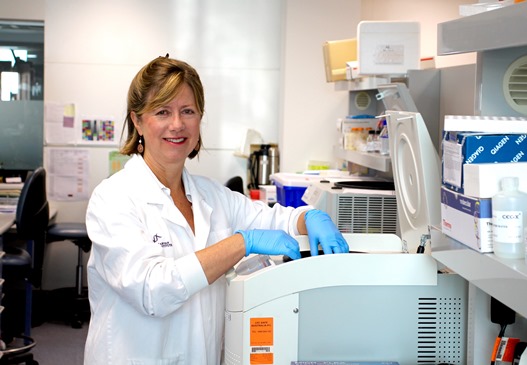
Developing a novel blood-based test for triple-negative breast cancer to inform treatment and care
Published: 10/7/19 11:23 PM

Clare Stirzaker
Biomarkers are “biological markers” that can be measured from clinical samples, such as blood, and correlated with health, disease or drug treatment. There is a clear need to develop new biomarkers by which triple negative breast cancer patients can be accurately separated into high-risk and low-risk subgroups and to predict their response to therapy.
Currently, conventional approaches to rank the severity of triple negative breast cancer tumours are limited to tissue, symptoms and pathological features such as tumour size. At present there are no indicators at the molecular level that can be used to accurately discriminate between high-risk and low-risk triple negative breast cancer tumours, and no biomarkers that can predict how a patient with triple negative breast cancer will respond to therapy..
Non-genetic influences on gene expression, known as epigenetic biomarkers, are measures that are significantly advanced compared to current approaches. DNA methylation is one such epigenetic change that alters the DNA structure without changing the DNA sequence. This acts as a stable biomarker and is easily detected in a patient’s DNA sample.
As such, epigenetic biomarkers have huge potential to enhance the clinical management of triple negative breast cancer patients. Epigenetic testing can be used to distinguish between patients that will benefit from a more aggressive treatment plan and those that can be spared unnecessary harsh treatment. In addition, it can be used to inform patients about their disease, monitor their response to therapies and improve their health outcomes by offering a more personalised treatment strategy.
This project led by NBCF- funded researcher Associate Professor Clare Stirzaker, will address the critical need to incorporate DNA methylation testing into blood-based tests for non-invasive ‘liquid-biopsy’ testing. In turn, it will enable more informed treatment decisions to improve the health and wellbeing of breast cancer patients.